Gum Disease Treatment – Billerica, MA
Don’t Let Gum Disease Damage Your Smile Further
Many people are currently suffering from gum disease and don’t even realize it. Having this condition identified and treated as quickly as possible is of the utmost importance, as advanced gum disease can lead to very dire consequences for your smile as well as your overall health. Dr. Danzig and Dr. Snook are proud to offer high-quality care for Billerica patients who are concerned about their gum health. Contact us for more information about our periodontal treatment options.
Why Choose Grateful Dentists for Gum Disease Treatment?
- Comfortable Scaling and Root Planing
- Experienced Dental Experts
- Various Dental Insurance Plans Accepted
What is Gum Disease?
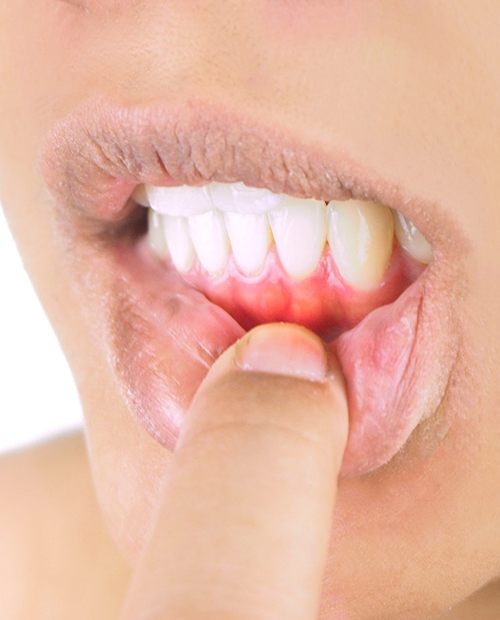
Gum disease is an extremely common oral health issue that is estimated to affect almost half of all Americans who are at least 30 years old. It occurs when oral bacteria start to attack your gums, leading to an infection. Gingivitis is the earliest form of gum disease, and while it may not seem too serious on the surface, it can eventually turn into periodontitis, which is a much more severe issue.
Symptoms of Gum Disease
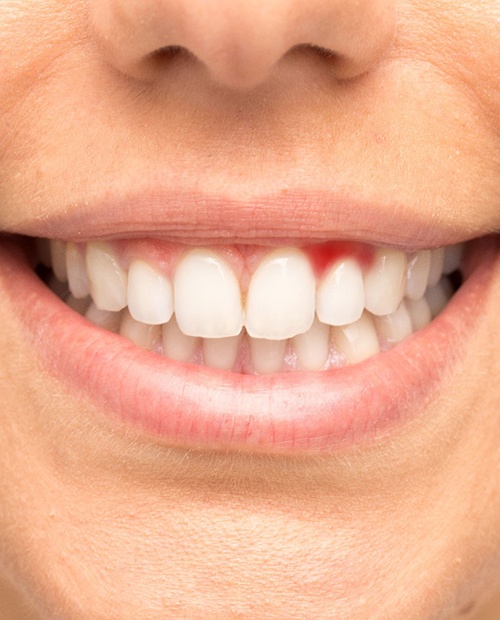
Do your gums seem to bleed whenever you brush or floss your teeth? This is one of the more well-known warning signs of gum disease. Other possible symptoms include red or swollen gums, chronic bad breath, and gum recession (which can make your teeth look longer than normal due to the gum tissue pulling away). If gum disease is sufficiently advanced, some of your permanent teeth could come loose or may even be lost entirely.
How Do We Treat Gum Disease?
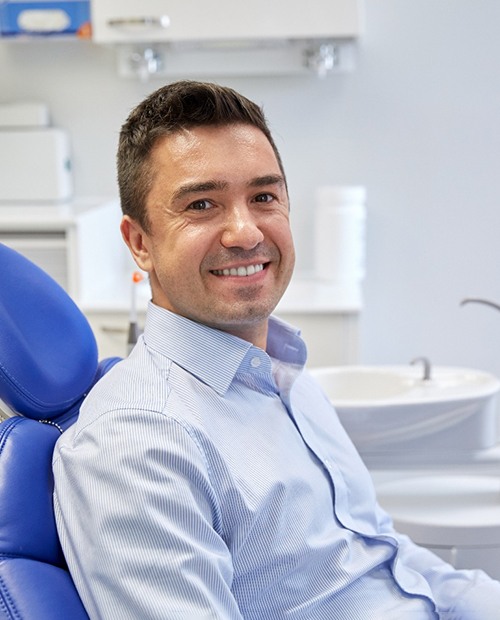
First of all, we need to determine how advanced your gum disease currently is. We will carefully examine your gums in order to get a feel for your situation. After our examination is complete, we will use what we found to determine what your treatment plan should look like. Our practice’s periodontal solutions include scaling and root planing as well as antibiotic treatment; we can go into more detail about these services when you visit our practice for a consultation.
Scaling & Root Planing
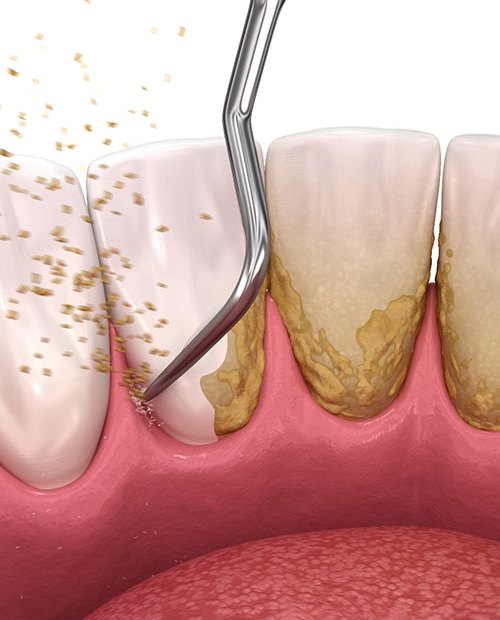
Scaling and root planing are part of a process known as deep cleaning, which goes a little further than the type of cleaning that is typically performed during a routine dental checkup. Scaling is performed to get rid of plaque and tartar that has accumulated around and underneath the gums. After that comes root planing, which is when we smooth out the roots of the teeth. Gum tissue tends to have an easier time reattaching itself to smoother tooth roots.
Do I Need Scaling & Root Planing?
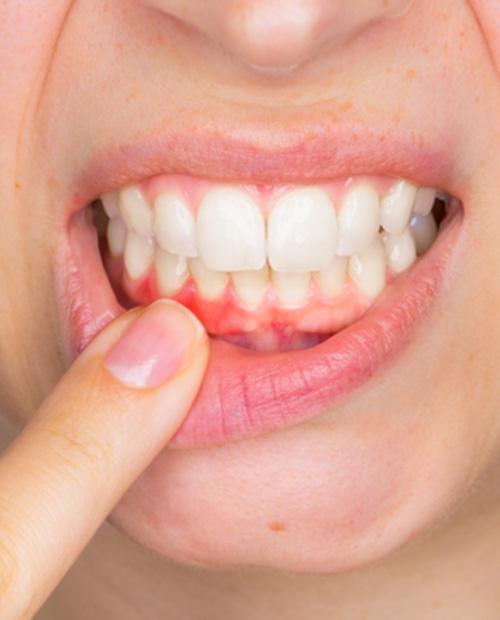
Scaling and root planing is often called a “deep cleaning.” When we notice early signs of gum disease, including bleeding, swelling, and inflammation, we will try to address the issue upfront to keep it from progressing and causing permanent damage to your smile. The goal of scaling and root planing is to remove bacteria that have accumulated around or beneath the gumline. During this treatment, the roots of your teeth will be smoothed over. This will help your gums to heal more quickly by reattaching to the teeth.
The Process of Scaling & Root Planing
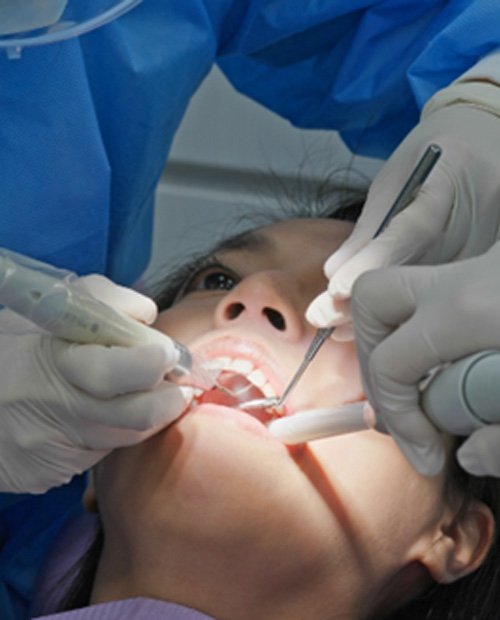
There are two different parts of the scaling and root planing process, and they usually take place over two different appointments. The first part is the “scaling.” This involves scraping away plaque and tartar using special dental instruments. We will also target areas beneath the gumline where bacterial deposits have formed.
Once the scaling is complete, we will begin root planing by smoothing the sections of the teeth that are normally hidden beneath the gum tissue. This helps the gums to adhere to your teeth more easily and makes it more difficult for bacteria to build up again. Ultimately, it can reduce your risk of developing gum disease in the future.
Aftercare Tips for Scaling & Root Planing
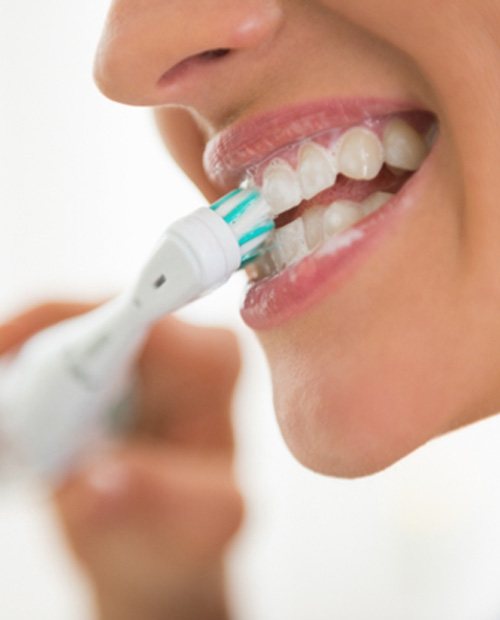
Some soreness is normal after scaling and root planing. Your gums may also be a little bit inflamed. This is temporary and should return to normal after a few weeks. Here are some tips to speed up your recovery time:
- Gently brush twice a day with a soft-bristled toothbrush and fluoridated toothpaste.
- Rinse your mouth with salt water after eating to prevent irritation and wash away food debris.
- Floss thoroughly every day.
- Stick to a soft diet for the first 48 hours after your treatment.
- Avoid foods that are especially spicy, acidic, or hot.
- Avoid intense physical activity directly after your procedure.
Antibiotic Treatment

Since gum disease is caused by harmful oral bacteria, it’s probably no surprise that antibiotics often prove useful for treating the condition. Note that we will typically recommend antibiotic treatment in addition to scaling and root planing in order to get rid of as much bacteria as possible.



